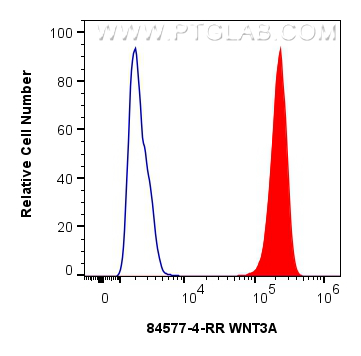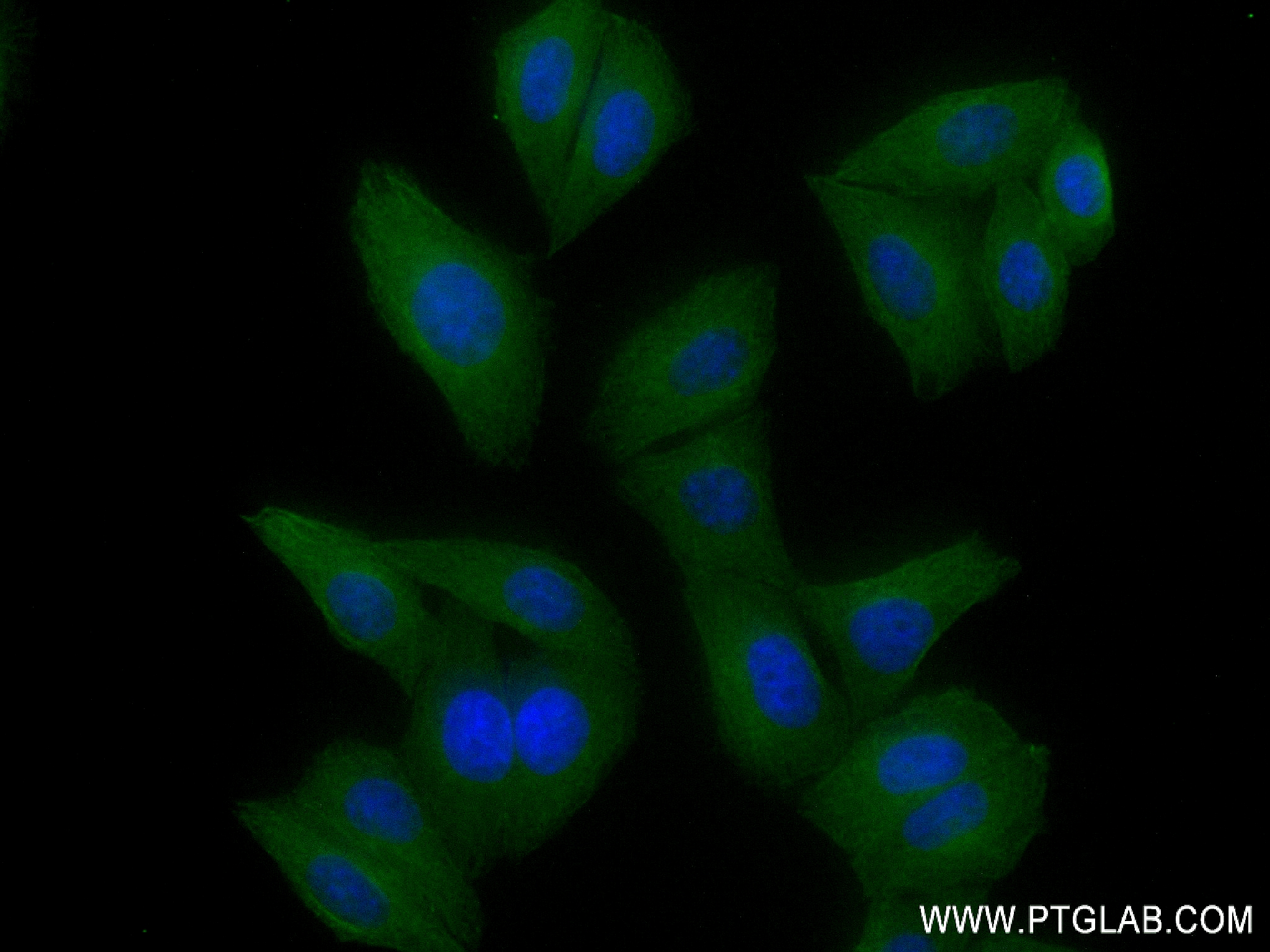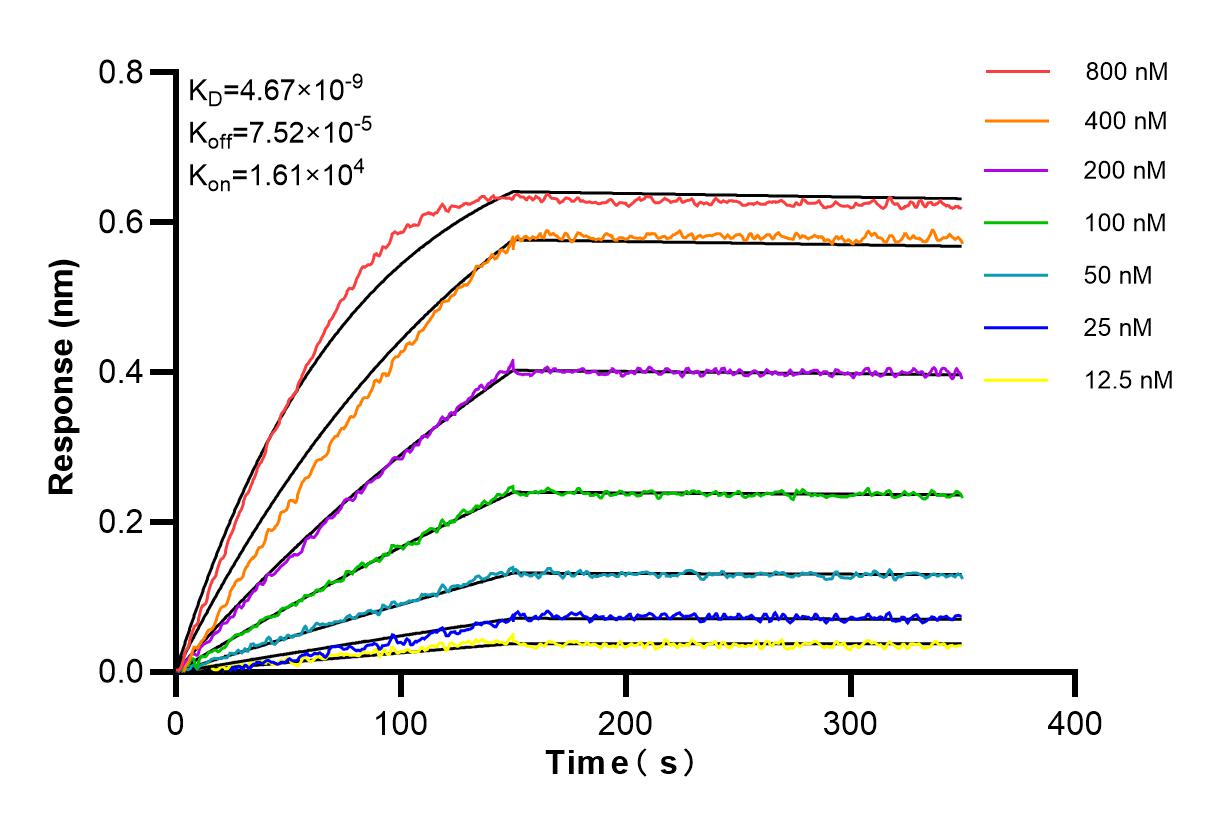验证数据展示
经过测试的应用
| Positive FC (Intra) detected in | HeLa cells |
推荐稀释比
| 应用 | 推荐稀释比 |
|---|---|
| Flow Cytometry (FC) (INTRA) | FC (INTRA) : 0.25 ug per 10^6 cells in a 100 µl suspension |
| It is recommended that this reagent should be titrated in each testing system to obtain optimal results. | |
| Sample-dependent, Check data in validation data gallery. | |
产品信息
84577-4-PBS targets WNT3A in IF/ICC, FC (Intra), Indirect ELISA applications and shows reactivity with human samples.
| 经测试应用 | IF/ICC, FC (Intra), Indirect ELISA Application Description |
| 经测试反应性 | human |
| 免疫原 |
CatNo: Ag25051 Product name: Recombinant human WNT3A protein Source: e coli.-derived, PET30a Tag: 6*His Domain: 250-350 aa of BC103921 Sequence: RGWVETLRPRYTYFKVPTERDLVYYEASPNFCEPNPETGSFGTRDRTCNVSSHGIDGCDLLCCGRGHNARAERRREKCRCVFHWCCYVSCQECTRVYDVHT 种属同源性预测 |
| 宿主/亚型 | Rabbit / IgG |
| 抗体类别 | Recombinant |
| 产品类型 | Antibody |
| 全称 | wingless-type MMTV integration site family, member 3A |
| 别名 | 241993E8, Protein Wnt 3a, Protein Wnt-3a |
| 计算分子量 | 352 aa, 39 kDa |
| GenBank蛋白编号 | BC103921 |
| 基因名称 | WNT3A |
| Gene ID (NCBI) | 89780 |
| 偶联类型 | Unconjugated |
| 形式 | Liquid |
| 纯化方式 | Protein A purfication |
| UNIPROT ID | P56704 |
| 储存缓冲液 | PBS only, pH 7.3. |
| 储存条件 | Store at -80°C. The product is shipped with ice packs. Upon receipt, store it immediately at -80°C |
背景介绍
WNT3A belongs to wingless-type MMTV integration site family, and abnormal Wnt signalling is often associated with severe human diseases, including cancer, osteoporosis and other degenerative disorders. WNT3A is a secreted glycoprotein that is involved in both canonical and non-canonical Wnt signaling pathways. The canonical Wnt pathway, also known as the β-catenin-dependent pathway, regulates gene expression by stabilizing β-catenin, which then translocates to the nucleus and interacts with transcription factors like TCF/LEF. It's shown to promote trophectoderm formation in embryonic stem cells. It's reported that the canonical Wnt/β-catenin signaling pathway also contributes to the carcinogenesis and progression of lung cancer cell lines. The non-canonical pathways, which are β-catenin-independent, are involved in cytoskeletal organization and cell polarity.





